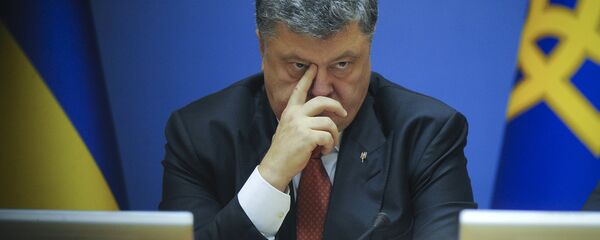In Studemann's (rather overbearingly paternalistic) viewpoint, a new 'Marshall Plan' for Ukraine would be successful only if finances are controlled by the International Monetary Fund, European institutions, and "bilaterally by the states involved."
"If things are left entirely in the hands of Ukraine, experience shows that this does not work," the diplomat said, speaking to Austrian business newspaper WirtschaftsBlatt.
"The money constantly disappeared into a black hole. If this is repeated again, the current financial stabilization [measures] will not achieve their goals," Studemann warned, speaking about the IMF loan and the funds provided by Western governments.
According to the former diplomat, Ukraine must create new democratic institutions, reform its justice system and to make it more independent of authorities. So far, however, nothing of the kind has been observed.
It remains unclear what exactly might be on the former ambassador's mind for him to consider the events of Maidan, which led to the overthrow of an unpopular but democratically elected government, the breakaway of Crimea, civil war in the southeast, mass corruption and almost total political, social and economic paralysis, a "positive" thing. If what Ukrainians refer to as the 2014 Maidan 'Revolution of Dignity' or the 2004 'Orange Revolution' have indicated anything, it's that the country's democratic process is often overshadowed by street revolts which have been unable to ensure the aptitude or accountability of the leaders they put into power.




